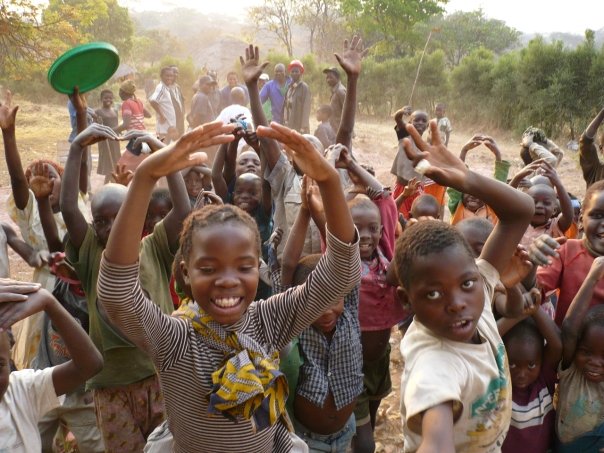Schools in Zambia are only free to attend up to the seventh year. Even before that time, though there are no official fees, many children are prohibited from attending because their families can’t afford to purchase the books or uniforms that the school requires for attendance (despite the cost of the eight notebooks and one pen required for one term being less than one dollar). Starting at the seventh year students must also sit for exams at the end of their second term (there are two terms per year). If a student doesn't pass the exam they can't continue onto the following year. Many students in Zambia don't finish secondary school (high school) until they are in their twenties because of problems with securing funds and failing years.
Zambian curriculum is borrowed from the British school system and the classes are taught using rote learning. Students memorize and memorize often (largely because of language difficulties) without understanding the meaning of what is being memorized. The official language after grade one is english leaving many students behind in the rural areas. Luckily, in practice, the teachers often use a bit of local language to teach though the students are still tested in english. Imagine learning history in english and then having to take a test on the material in portugese. I have a hunch it is a lot like that for most of the students, atleast in the area where I live.
In Zambia, one can see, in stark terms, the differences in opportunities available to those who have and those who haven’t finished their education (and for those who have, how good their marks, or grades, were). Here the grade twelve graduation certificate is often the difference between a life of hard manual labor in farming with little monetary reward and the opportunity for a significantly less labor intensive position in teaching, nursing, or some other service job where one receives a steady stream of income. Without a grade twelve certificate it is impossible to go to a college and in the "towns" (this is what all non-rural areas are called in Zambia) to find employment that pays a living wage.
Question: Can one be economically successful in America without finishing atleast a highschool education? How do opportunities differ in America for those who have and havent obtained a college diploma?
 This is my friend Ba Shimuyembe's family. The children are both his, his brother's, and his daughter's but they are all treated as if they were from the same parents.
This is my friend Ba Shimuyembe's family. The children are both his, his brother's, and his daughter's but they are all treated as if they were from the same parents.


